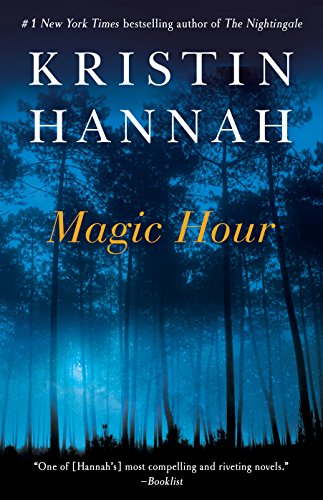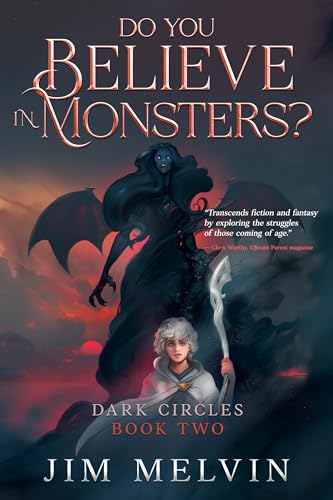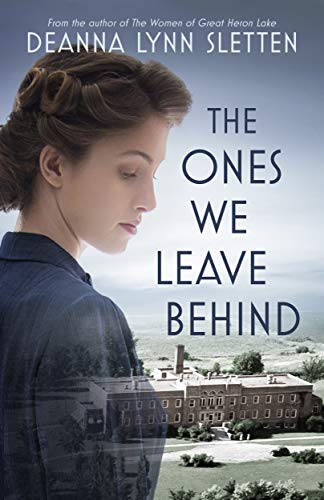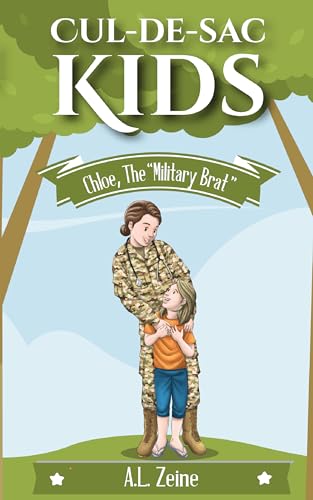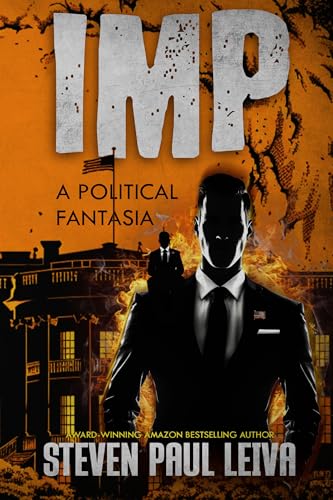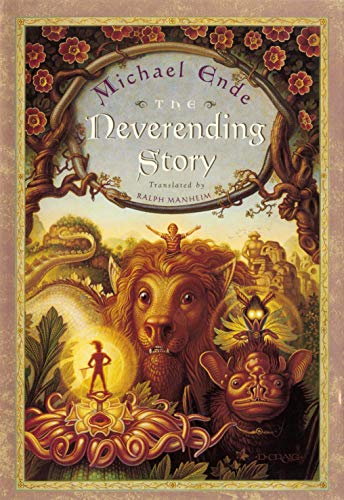30 straight rave reviews for this uplifting memoir of healing and empowerment…
“…No matter what you are going through in your life, after reading this book you will want to take on the world!…”
In and out of four foster homes before she turned two and sexually abused by a neighbor as a child, Liz Ferro found a way to heal through fitness and athletic achievement. Gritty, poignant, and often humorous, this well-written memoir is enthralling readers…
Finish Line Feeling
by Liz Ferro
This uniquely uplifting memoir tells the compelling story of the author’s journey from foster child and sexual abuse survivor to founder of the nationally recognized running organization, Girls With Sole. Ferro describes how to gain joy and fulfillment through athletics, and reminds us to believe in ourselves and our dreams.
Gritty, yet often humorous, her story proves that with resiliency, anyone can be rewarded with the euphoria she calls the “finish line feeling.”
5-star praise for Finish Line Feeling:
“..You will be moved to tears, laughter, and you will be motivated and inspired to move!”
“…You want her to be your best friend because she is open, honest, nonjudgmental, will lift your spirits…and has an enormous, generous heart…”
an excerpt from
Finish Line Feeling
by Liz Ferro
No one can go back and make a brand new start. Anyone can start from now and
make a brand new ending.
-Unknown
Prologue
I remember the suitcase so vividly and clearly, as if I had packed it yesterday. It had an ice blue and electric pink ’70s paisley pattern on its soft cardboard casing. The zipper always got stuck and the plastic edges in the front that helped to guide the zipper were breaking down, but I loved that suitcase. Although it was very small, it seemed big enough to fit all the necessities of a young world traveler such as myself. I don’t remember the exact reason I had decided to leave that night, but I do recall feeling as if it was what I needed to do and that there was no sense in putting off the inevitable.
I was determined to pack it up, pack it in, and get going before someone could tell me that I had to leave. Rejection is never a good feeling, but the sting is lessened when it is experienced on your own terms. I didn’t know it at the time, but that was the beginning of a cycle that would continue in my life for many years to come. This would be my approach and “M.O.” for the majority of my future relationships: Leave them – before they leave me.
In many different ways, and on many different levels, my life has revolved around running. For a time all I could do was try to run away. Then I ran into trouble. As time passed, with endurance and tenacity, I ran with the idea of helping girls in need and haven’t stopped since.
In August of 2009 I founded the nonprofit organization, Girls With Sole, which uses free fitness and wellness programs to empower at-risk girls and those who have experienced any type of abuse. Turning a negative into a positive, I have made it my life’s mission to instill strength, self-confidence, and pride in girls, and to help them embrace running (and other sports) – for all the right reasons.
My greatest satisfaction is seeing our girls reach a goal, cross that finish line, and begin to believe in themselves because of Girls With Sole. There is nothing like it. The smiles on their faces are priceless, and not something they give out easily. But the finish line draws golden sunshine from within their hearts that they didn’t know existed.
The finish line feeling is truly life-changing.
What has surprised me the most about Girls With Sole is how truly needed it is and how quickly the girls respond to it in a positive manner – even those who walk into the room in the worst moods, proclaiming they will not participate.
Within 20 to 30 minutes these same girls are running, dancing, or playing basketball or volleyball. They are laughing, smiling, and having a great time being kids – and that is what it is really all about.
Saints are sinners who kept on going.
—Robert Louis Stevenson
I
I was 4 years old, and in the two years that I had come to live with them as their child, I still had never told my parents that I loved them. Although I was adopted when I was around 2, I never expressed love to anyone until sometime after I turned 6. I hated saying “I love you” more than I hated peas, which was saying a lot. It’s strange to think about that, now that I have my own children, because they expressed their love to me nonverbally before they could speak by showing trust and by squeezing me around my neck like baby monkeys. When they learned to talk, I heard “I love you Mommy” as often as I heard “Why?” or “I want juice.” It was second nature to them and not something that they guarded and jadedly kept to themselves, the way I did at their age.
No matter how many times my parents tried to reassure me and tell me that they loved me, my answer to them was always, “Okay.”
I didn’t know she was on to me until the day my mom tried to explain that I didn’t need to take things out of my brothers’ rooms and stash them in my pillowcase. She said that I would be staying and that I didn’t need to take souvenirs or prepare to leave. Again, I answered with “Okay,” but I didn’t believe her.
In my mind I knew that I would be left behind or sent away, just as it had been in the four foster homes I lived in before I was adopted (the different places I lived between birth and 2 years old that left me petrified of men and afraid to be left alone). I was told later in life that my time in foster care was somewhat traumatic and was said to be the root of my fear of loud and sudden noises and fear of the dark, as well as the continuous crying and nervous rash that was always on my face when I first came to my parents. The trauma I experienced in the foster homes may also be the reason that I sucked my thumb until college, wet my bed for much too long, and had “outbursts” that could scare a Marine drill sergeant.
The pint-sized paisley suitcase filled quickly, requiring last-minute judgment calls regarding important, yet difficult, decisions such as which stuffed animals to bring and which to leave behind. There was only room for one nightgown and one set of Garanimals. The monkey Garanimals were my favorite, so I crammed the matching top and bottom set in next to the items I had stolen from the rooms of my brothers. There weren’t many things I liked better than rummaging through their stuff when they weren’t around and pocketing the particularly choice items. There was also a certain thrill that went along with the feeling that I could be caught in a stranger’s room looking through and possibly pilfering their personal treasures – but I lived there, so technically they were not strangers at all.
I studied each item very closely, and those that were up to snuff went back with me to my bedroom so I could stash them in my pillowcase until it was time for me to pack them up and take them to wherever I would end up next. I looked at the winning trinkets that had been transferred from pillowcase to suitcase, and decided they were worth the extra weight. I left them nestled next to my yellow polyester nightgown and purple monkey corduroys, closed the lid, wrestled with the zipper, and made my way down the hallway to the top of the stairs.
I stopped to listen for my parents’ voices downstairs, which I determined to be coming from the living room. This wasn’t ideal, because the front door of our house was just off to the right of the living room, so they would definitely see me walking past them wearing a jacket and carrying a suitcase. The plan was to keep my head down and keep moving. I lugged the heavy little suitcase down each stair one at a time, and when I reached the bottom of the stairs I looked down at the floor and made a beeline for the front door. Right away I heard my mother running toward me and yelling to my dad in a panicky voice:
“Dad! Stop her! She’s leaving!”
(Even as a young kid I found it odd that my parents referred to each other as “Mom” and “Dad.” When they spoke to each other or about each other, they never used their given names.) My father, ever the calming voice of reason, responded with:
“Take it easy. It’s dark outside. It’s nighttime. She won’t even make it down the driveway.”
I walked out the front door and past the lamppost. I passed the plum trees that flanked the driveway of my childhood home in Upstate New York, made a right turn onto the sidewalk, and kept on walking. I made it all the way to the end of our street before my father picked me up in his car to take me back home, and that was the last time reverse psychology was ever used on me by my parents.
My dad was born and raised in Cleveland, Ohio, and my mom was from Furth, Germany, and grew up during World War II. When she came to the United States she was sponsored by a family in New Jersey and worked as a secretary for the American Army. In an attempt to get her out to meet people, my mom had been talked into going to a party by an American friend. Living in New Jersey at the time as well, my dad was an engineer for DuPont and turned out to be the person my mother was destined to meet at that party.
My father was a very loyal and loving husband, and my parents would still be together today, except that my father passed away in July of 2000. My parents moved around a bit after getting married, but ended up back in Cleveland where my dad worked as an engineer during the day and went to Case University at night in his pursuit to become a patent attorney. By this time my mom had given birth to my oldest brother, David, their only biological child. My parents loved children and wanted a bigger family, but my mom endured many complications during subsequent pregnancies and ended up getting a full hysterectomy. In the meantime, my father was able to complete law school while working full time during the day, and studying late at night while also giving their new son his 3:00 a.m. bottle. The first job my father had as a patent attorney was with the United States Patent and Trademark Office in Washington, D.C. It was in Washington that my parents adopted their second child, and named their new infant Paul. My parents now had two little boys and my dad had a brand-new career. He was in his 40s – I think they were ahead of their time in this regard.
People back then didn’t adopt kids or completely change careers in their 40s, but my dad did. After working for the U.S. Patent and Trademark Office my dad decided he would be happier working for a corporation, so he took a job as an international patent attorney at the Eastman Kodak Company, which brought them all to Rochester, New York, and unknowingly, to me. I was a Catholic Charities baby who was moved between four different foster homes before being adopted for good by my mom and dad. I have never met my biological parents, nor have I ever looked for them. I don’t have any desire to find my real mom (or dad) and to be honest, I don’t think I want to know what I might find by bringing them into my life. I don’t feel the need to rock the boat by bringing a new person into the equation or by trying to locate someone who might not want anything to do with me anyway. I’m satisfied with the family I have created with my husband and two children. They are my real family.
My parents had been talking about adopting another child after my brother Paul, but the timing didn’t seem to be right. They got all the necessary paperwork together, but they were busy and happy, so adopting another child went on the back burner and the paperwork was temporarily forgotten.
The words “paperwork” and “the bookshelf” were very prominent and often-used terms in our family. My parents loved the term “paperwork” and used it all the time to describe things of great importance that needed to be filled out by hand, such as forms for school, permission slips, and fliers brought home in our school bags, as well as any registration forms or official documentation. Items such as car keys, reading glasses, passports, driver’s licenses, or anything else someone in the family might be desperately searching for could also usually be located on the bookshelf.
It was my father’s love of books that resulted in an unusually enormous amount of them in our house as well as the need for bookshelves in literally every room. Most of them were hard-cover books from the Book of the Month Club that were never read due to lack of time. But like his other unfinished chores, he was going to get around to them. He was also going to get around to the giant stack of newspapers that were placed not so neatly next to his Lazy Boy. My mother begged him to throw the pile of eyesores away, but my father wouldn’t do it because he had every intention of getting around to reading each and every paper. Eventually my mom bought him a poster that had an illustration of a big circle with the word “roundtoit” written in the middle of it. The caption underneath said: “Everything I have been meaning to do will get done – now that I’ve finally gotten a roundtoit!” The poster wasn’t enough to do the trick, and also wasn’t that clever or funny. It was actually rather ugly and I hated that my mom hung it in the kitchen next to our fridge.
The piles of papers continued to be a constant in our house, as were the books which seemed to multiply like rabbits. Needless to say, the bookshelves were super important in our home and as a child I was fascinated and proud of all the books my dad had. To me, the plethora of books told the world how intelligent my dad was. They made me feel proud of my dad, and evoked a sense of pride and comfort from the statement I felt they made about my home and the people who lived there. The biggest and most prominent bookshelf in the house was a built-in that took up an entire wall of our living room. It was painted white, and with all the different colors and cover designs of the books, in my eyes, it looked like art on canvas. I liked it much better than the actual art my parents hung on the walls, which was a combination of mountains in Germany, Bavarian knickknacks, or souvenirs from my dad’s trips to Japan (not a good eclectic mix, in my opinion). That this shelf was a catch-all for anything that my parents didn’t want to look at right away, but that they also didn’t want to misplace, did not make it look like a work of art. It was not uncommon to hear someone in our house yell, “Dad! I can’t find my report card that you were supposed to sign. Where is it?”
The answer was always, “It’s on the bookshelf.”
The Bookshelf.
Of course there was more than one bookshelf in our house but when someone referred to “the bookshelf,” everyone knew to go to the one in the living room. It was the one we posed in front of for each of our First Communion photos, Christmas pictures, prom pictures, in our Halloween costumes, and all other important occasions. It was the one where all the extremely important paperwork eventually laid to rest. So it made perfect sense that the adoption paperwork sat patiently for months and months on the white bookshelf, gathering dust amongst the books my dad intended to get around to reading.
The way my dad told the story, God spoke to him one day in church and told him to adopt me. I am not a religious person, but my parents both had/have a very deep faith. My dad told me, as he told anyone who wanted to know why they had adopted me, that he knew it was time because God said there was a little girl who needed him. After church that day he went home and headed straight to the bookshelf to get the paperwork. He got it all in order and submitted it, which inevitably led my parents to me. When they knew for sure that I would be coming to them, they told my brothers they would be getting a baby sister. My brother Paul was thoroughly disappointed when I showed up and could walk and talk (although I didn’t say much), since these were not things that a “baby” should be able to do. The social worker brought me to the house and my mom said that I had the saddest, most questioning eyes she had ever seen. That speaks volumes, coming from a woman who grew up during World War II in Germany.
I was brought over to the house without any clothes or belongings aside from what I was wearing. The way my mom tells it, she asked the social worker where my things were, and the woman told my mom she didn’t bring anything with me in case they wanted to give me back. What my mom said next, I probably could have done without being told. She told the social worker that I was not a dog, and that they weren’t going to send me back – so she should go and get my things because I would be staying. I guess in my mom’s mind she thought I should know about this exchange with the social worker because she felt that it was some type of compliment, but I never felt as if it was.
Each one of my parents’ children come from different biological parents, and were born and “collected” in a different city. Most people collect snow globes from various cities or those little metal spoons, but my parents picked up a kid in each prominent place in which they resided. I guess it’s no different from people being conceived on a family vacation in different destinations, but it still strikes me as being rather cool and progressive, yet also a bit odd. I was 2, Paul was 7, and Dave was 11 years old when we became siblings.
It seemed to me that a lot of time (too much time) was spent trying to figure me out – everything from the way I looked to the way I behaved – and in every way I felt I was a huge disappointment. I guess because I was adopted and looked nothing like my mom, dad, or brothers (and because I was a girl), there was always scrutiny and speculation among my mother and her friends about how I would “turn out.” Big feet, long legs, and long, thick eyelashes with good bone structure were constantly mentioned – leading them to surmise I was a budding model.
I never cared that I didn’t look like the rest of my family, but the importance of my looks and the focus on them seemed to magnify as I got older, and I wished that they didn’t make such a big deal out of it when I was around to hear it. This was a growing point of contention that festered within me as a teenager. I stared at myself for hours in the mirror, mentally tearing apart each feature. I started scrutinizing every centimeter of my face, trying to see if I could figure myself out by picking apart my features and predicting what they would turn into when I got older.
Over time I began to grow into my big feet, my legs were no longer considered long by any means and were nothing close to “model-like,” and my nose would never look like Cheryl Ladd’s. The only thing that made me feel better was that I knew my legs were athletic and strong and they allowed me to do gymnastics and to run fast. I would never be one of Charlie’s Angels, but I could pretend to be the Bionic Woman, which I thought was cooler anyway.
It was hard for me to sit still, to stay quiet, and to contain myself. My mother’s friends suggested she put me on Ritalin, but she told them that she didn’t want to crush my spirit. It was much later that I discovered these to be normal traits for a person who has suffered abuse or trauma, but at the time I just thought that I was defective somehow. I wished I could shed my own skin and be someone else. I looked at models in magazines and agonized that I would never look like them. In my frustration and anger I rebelled against authority and acted out in inappropriate and self-destructive ways. I hated having people looking at me and scrutinizing me and felt that everyone I came in contact with was doing it, although that probably wasn’t so. If someone looked at me, I assumed they were thinking negative things about me and I would flip out. There was a dark and angry storm that could visibly shake the most stable foundations, brewing deep beneath my outer layer of sunshine and blue skies. Those who set me off, or simply looked for a little too long, ended up caught in the tempest with no umbrella or shelter to be found.
… Continued…
Download the entire book now to continue reading on Kindle!

